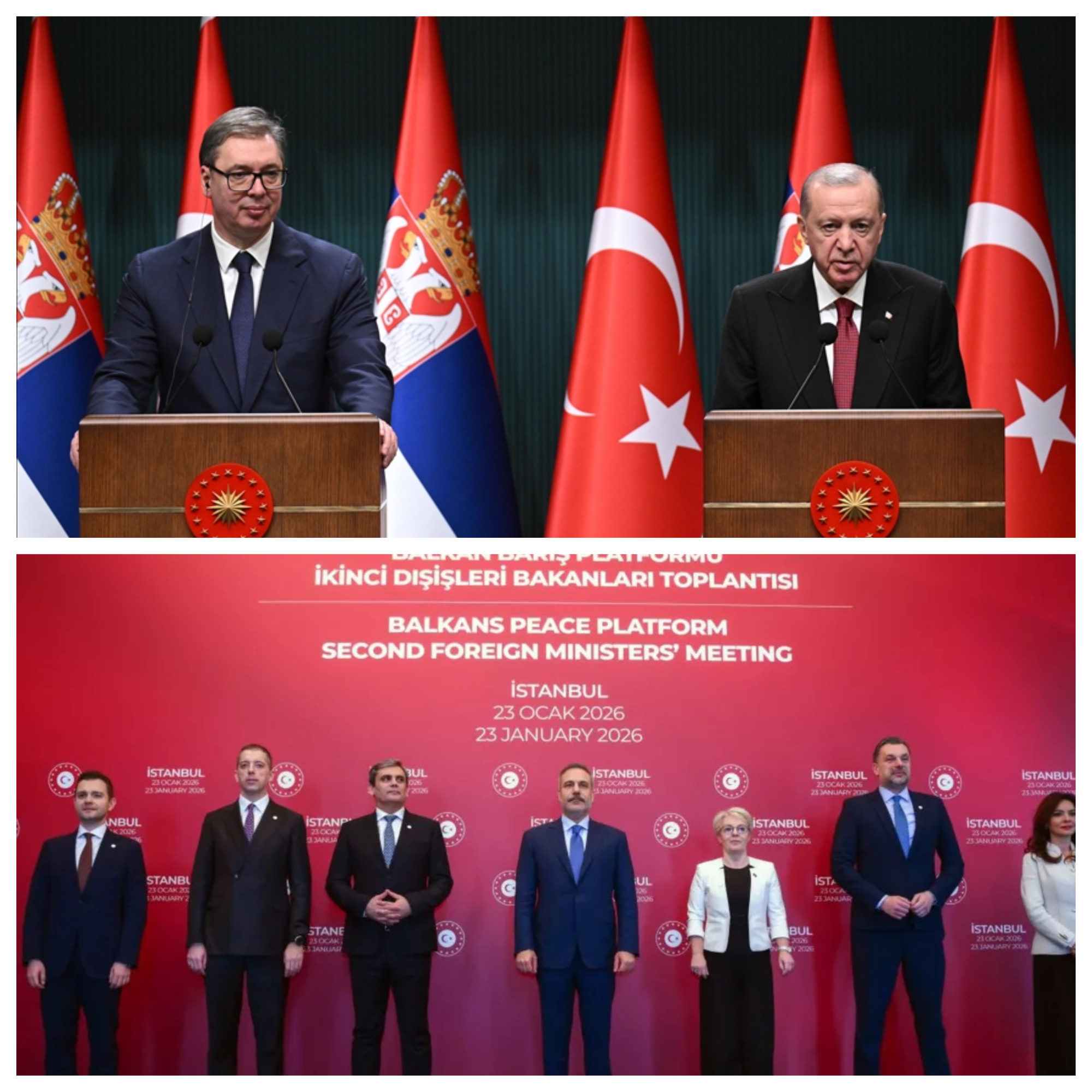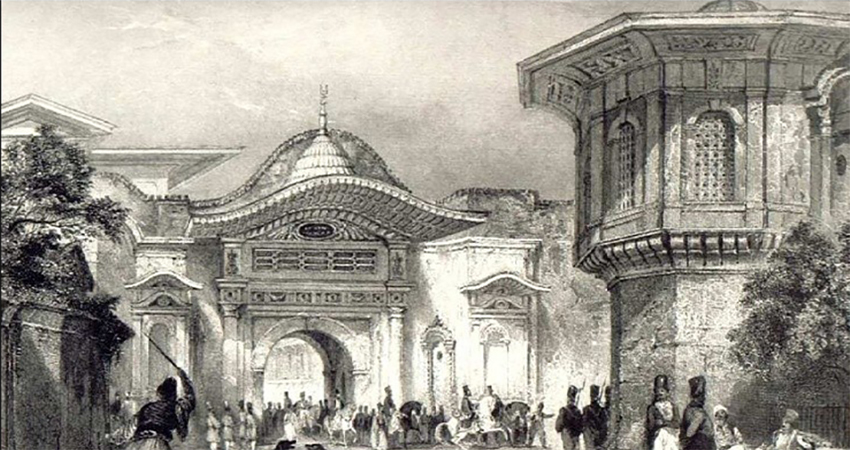
Recent history of Anatolia, heartland of Turkey, bears witness to human tragedies. The era preceding and succeeding the First World War was a period of disintegration, collapse, and partitioning of the Ottoman Empire. The aim was to displace the Turkish people from the Balkans, where in many regions they constituted the majority of the population, as well as from western Anatolia, to the East, to land locked interior of Anatolia. It would not be justifiable to assess this observation as one of pessimism, cynicism, as one sided, biased, or subjective. History has provided Turkish people with a unique opportunity, with no room for ambiguity or means of denial, to see and fathom how the Allied Powers of the time aimed to shape the future of Turkey, with a written document, worked out consciously and through negotiations among themselves. This document, casting lasting bearings to a whole nation, was the Treaty of Sévres, designated to be enforced on Turkey following the First World War. This imposition, which aroused the indignation of the people, leading to a national struggle of life or death, was successfully scrapped away, to establish the foundations of the Republic of Turkey with the Treaty of Peace of Lausanne.
More than 5 million civilian Turks perished as they were killed mercilessly in the period from the rebellion in the peninsula of Peloponnese, the Ottoman-Russian war of 1877-1878, the Balkan wars of 1912-1913 to the First World War that set the stage for Armenian insurgency and collusion with the enemy forces as the Ottoman forces waged a war on five diverse fronts. The number of Turkish-Muslim civilian losses during 1914-1918 in eastern Anatolia alone, perpetrated by Armenians or Armenian involved foreign forces, with full records in the Turkish archives, surpass 500.000. The number of Turks forcefully displaced during this era, predominantly from the Balkans and the Caucasus is a multiplication of the above cited figures. Neither the Turk in the street in specific, nor the Turkish people in general have not forgotten the enormity of this humanitarian crime that Turkish people were subjected to in those years of turmoil. It is, however, one thing not to forget and a different thing to scratch history, to galvanize feelings of vengeance, or to carry forward one-sided historical grievances or unsettled accounts into present.
The Turkish people chose to bury past tragedies to memory, opened a new chapter with the establishment of the Republic, selected the path to make a new beginning to build the future, resolved to raise the country -devastated from decades of war, impoverished economy, destructed infrastructure, perished generations and elites- to the contemporary level of civilization. This titanic undertaking and resolve, starting almost from ground zero and requiring much sacrifice has paid off, making Turkey eligible for membership to the group of world’s largest economies, the G-20, where Turkey assumed the rotating chair for the year 2015 and also hosted the summit meeting.
On the other hand, in the period when the country was inward looking and focused on national unity and economic development, Turkey was late in recognizing that historical prejudices were re-surfacing in a haunting manner. At present, it can be observed that the unity and stability of the Republic is facing political calculations with a view to hindering her to assume a more powerful regional position and say. At the same time, the regional position of Turkey is apt to transform in the evolving global geopolitical shift. What we are witnessing today is the emergence of a new concept of Eurasia, a continuous interaction from the Pacific to the Atlantic where Turkey is moving from being an easternmost extension or outpost of the West to the center of Eurasia. It is thus acquiring a new role -together with the Balkans, the Caucasus, Iran, and Central Asian republics- of forming the center piece and nexus of the East and the West.
This enviable path of development of the Republic and people of Turkey has not been free of interventions and endeavors of erecting hurdles in the way to divert their energy and focus on this successful march. One of these are Armenian allegations and claims. Following a period of silence and reality of historical facts, some extremist, radical or militant groups in the Armenian diaspora started demonizing Turks and Turkey, conjuring allegations of genocide and related claims. What started as a marginal, fringe group voice succeeded in spreading in the wider community, eventually getting international attention through years of violent terrorism carried out in a number of countries by those Armenian groups. As the phenomenon of terrorism has become a serious threat for the international community at present, its root causes under study and investigation, it would be of relevance to bring to attention how Armenian terrorism started, was tolerated, and terrorists became hailed as heroes.
Concluding this background introduction, I now come to the title of this article, where Armenia and Armenians go wrong: The miseries and tragedies suffered by the Armenian population of the Ottoman Empire is acknowledged in Turkey. They are neither denied nor minimized. The Armenians of eastern Anatolia were subjected to forced resettlement in the southern territories of the Empire in 1915. It is estimated, upon reliable historical evidence that up to 300,000 lost their lives due to diseases, deprivation, geographic-climatic conditions as well as harassment of local bandits. By citing this number, the intention is not to play a numbers game. 300,000 is already an enormous number. Every single life is precious and every single life lost deserves to be honored with blessing and condolence.
However, what needs to be recalled here, underlining the wrong that is being done, is the historical fact that during the same period, at the same geography, in excess of 500,000 Turks-Muslims perished under similar conditions. To close the eye to the tragedies of such a big number, to develop a narrative as if it were only the Armenians who were victimized, to single out the Turks as the perpetrators serve only to provoke the Turkish people to deep indignation. Scratching historical past in this biased and revengeful manner revives the tragic memories of the Turkish people, brings out the suppressed pain of their losses and in turn, opens the door for feelings of counter revanchism. No people’s respect and pain for their losses is less than others. The silence of the Turkish people for their losses should not be interpreted as one of indifference, but rather as one of realism and moral high ground. Efforts and attempts to reverse this understanding is bound to bring about more enmity and revengefulness in place of confining historical facts of the past to scholarly research.
Armenia and the Armenian diaspora are in need of reassessing whose interests the continuing campaign against Turkey and the Turkish people serve as well as who bears the brunt of this campaign. Today, the realistic and humanitarian gesture of Turkey, stating readiness to share mutual tragedies and bereavement, is to be understood and the extended hand to be held. The rational way forward for both peoples for a win-win solution is to start working on means for establishing bilateral and regional cooperation.
On the eve of the New Year, as we leave behind the year of 2015 where there were great expectations on part of Armenians, which turned out to be unrealistic, even wrong, our New Year’s wish and resolution for 2016 is to have rational and conciliatory understanding to guide us to the future.
© 2009-2025 Center for Eurasian Studies (AVİM) All Rights Reserved

 TÜRKİYE-SERBIA RAPPROCHEMENT AND THE BALKAN PEACE PLATFORM: TESTING BALANCING ROLE
TÜRKİYE-SERBIA RAPPROCHEMENT AND THE BALKAN PEACE PLATFORM: TESTING BALANCING ROLE
 THE AMBIGIOUS RESOLUTION ADOPTED BY THE BELGIAN HOUSE OF REPRESENTATIVES REGARDING THE EVENTS OF 1915
THE AMBIGIOUS RESOLUTION ADOPTED BY THE BELGIAN HOUSE OF REPRESENTATIVES REGARDING THE EVENTS OF 1915
 THE FIGHT AGAINST EXTREMISM AND THE OTTOMAN LEGACY
THE FIGHT AGAINST EXTREMISM AND THE OTTOMAN LEGACY




























